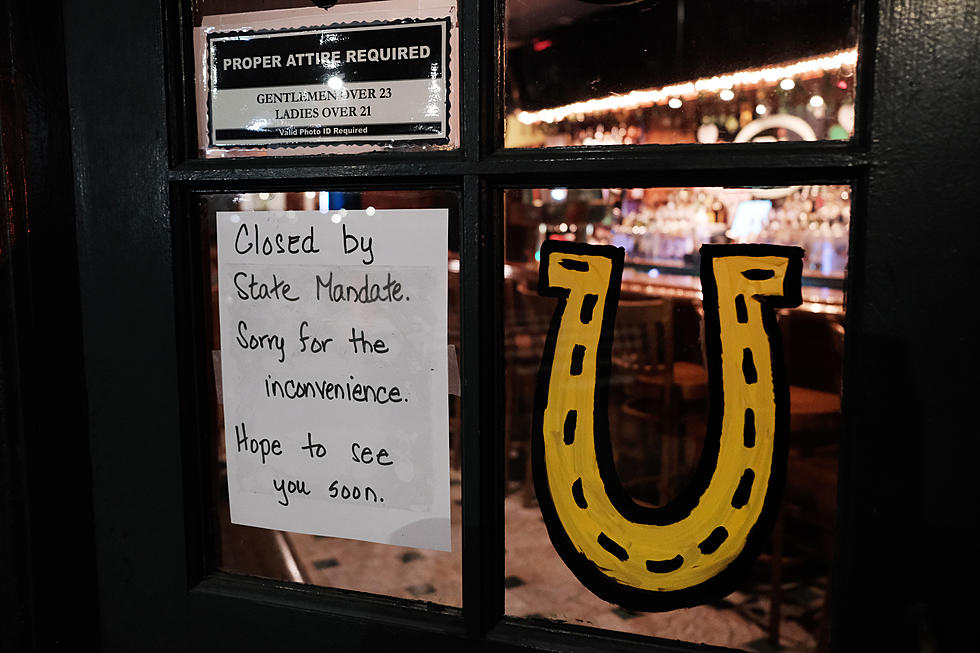
NJ lawmakers eye nearly half-billion in COVID recovery grants
TRENTON — State lawmakers aren’t waiting until Gov. Phil Murphy introduces the proposed state budget next week to initiate new spending in response to the coronavirus pandemic.
Last week, the Senate health committee endorsed a bill that adds $180 million to the current state budget to increase payments to social services and early intervention providers. A separate bill with a bipartisan list of sponsors would appropriate $300 million more for small business and not-for-profits.
Both of those bills would spend state funds, not federal COVID relief bills such as the CARES Act.
“With the state sitting on a growing multi-billion surplus, there’s no budgetary reason to oppose this bipartisan measure,” Senate Minority Leader Tom Kean Jr., R-Union, said of the new $300 million bill. “We sincerely hope that our colleagues in the General Assembly and Gov. Murphy will join us in advancing this critically important initiative.”
The increased payments to social services providers would be available to day habilitation providers, childcare providers, early intervention providers, behavioral health providers and substance use disorder providers.
“Our agencies are, I would say, financially fragile, particularly those with day programs that have been closed since the onset of the pandemic,” said Valerie Sellers, chief executive officer of the New Jersey Association of Community Providers. “It’s very hard to sustain those operations over a long period of time when there is no revenue being generated.”
Jacob Caplan, advocacy manager for the Easter Seals New Jersey, said day habilitation programs were “reeling before the pandemic but has only continued to struggle severely due to the order of closure at the beginning of the pandemic, a very brief reopening, which saw us expend significant resources, only to be closed several weeks later as it became clear we were in the second wave.”
Caplan said the legislation will help “ensure stability and proper funding for programs as we work our way through this pandemic and making sure that programs are able to be there for those who need them on the other side.”
Tom Baffuto, executive director of the ARC of New Jersey, said he was thankful the bill was expanded to include early intervention providers contracted with the Department of Health.
“This is just going to provide us with the funding that we need in this very difficult and challenging time,” Baffuto said. “This infusion of funding will go a long way to solidifying the safety net of services for individuals with intellectual and developmental disabilities.”
Mary Abrams, senior health policy analyst for the New Jersey Association of Mental Health and Addiction Agencies, said her group is “seriously concerned” that many organizations won’t be able to access the funds, which would be available only through the end of June, because they’d have to show they’re going through extreme financial distress.
Abrams said agencies are juggling financial support from various streams – such as Paycheck Protection Program loans, Provider Relief Funds and other CARES Act sources, as well as state emergency payments and FEMA – that are covering gaps from lost revenues and increased expenses.
“So, trying to demonstrate extreme financial distress not only because of all that incoming revenue but because of the difficulty that all of the providers are having managing all those various funding streams is of great concern,” Abrams said.

“But all that revenue has only brought all the agencies under fee-for-service back to their original base funding that was inadequate since the transition to fee-for-service,” said Abrams, who suggested $25 million of the $180 million to dedicated to providers of behavioral health services for those perennial funding shortfalls unrelated to the pandemic.
Separate from those bills, lawmakers are also advancing plans to spend $350 million more helping landlords by covering unpaid, past-due rents and $4 million more on local food pantries. Both those bills are paid for with federal CARES Act funds.
Michael Symons is State House bureau chief for New Jersey 101.5. Contact him at michael.symons@townsquaremedia.com.
COMPARE: Highest 2020 property taxes in each county
More From New Jersey 101.5 FM









